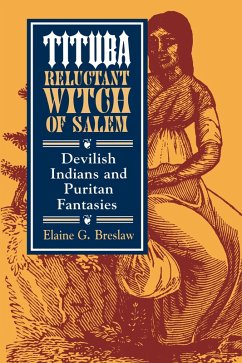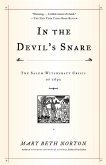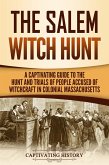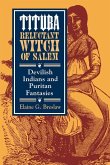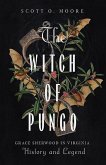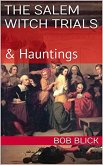A landmark contribution to women's history that sheds new light on the Salem witch trials and one of its most crucial participants, Tituba of The Crucible
In this important book, Elaine Breslaw claims to have rediscovered Tituba, the elusive, mysterious, and often mythologized Indian woman accused of witchcraft in Salem in 1692 and immortalized in Arthur Miller's The Crucible.
Reconstructing the life of the slave woman at the center of the notorious Salem witch trials, the book follows Tituba from her likely origins in South America to Barbados, forcefully dispelling the commonly-held belief that Tituba was African. The uniquely multicultural nature of life on a seventeenth-century Barbadan sugar plantation-defined by a mixture of English, American Indian, and African ways and folklore-indelibly shaped the young Tituba's world and the mental images she brought with her to Massachusetts.
Breslaw divides Tituba's story into two parts. The first focuses on Tituba's roots in Barbados, the second on her life in the New World. The author emphasizes the inextricably linked worlds of the Caribbean and the North American colonies, illustrating how the Puritan worldview was influenced by its perception of possessed Indians. Breslaw argues that Tituba's confession to practicing witchcraft clearly reveals her savvy and determined efforts to protect herself by actively manipulating Puritan fears. This confession, perceived as evidence of a diabolical conspiracy, was the central agent in the cataclysmic series of events that saw 19 people executed and over 150 imprisoned, including a young girl of 5.
A landmark contribution to women's history and early American history, Tituba, Reluctant Witch of Salem sheds new light on one of the most painful episodes in American history, through the eyes of its most crucial participant.
In this important book, Elaine Breslaw claims to have rediscovered Tituba, the elusive, mysterious, and often mythologized Indian woman accused of witchcraft in Salem in 1692 and immortalized in Arthur Miller's The Crucible.
Reconstructing the life of the slave woman at the center of the notorious Salem witch trials, the book follows Tituba from her likely origins in South America to Barbados, forcefully dispelling the commonly-held belief that Tituba was African. The uniquely multicultural nature of life on a seventeenth-century Barbadan sugar plantation-defined by a mixture of English, American Indian, and African ways and folklore-indelibly shaped the young Tituba's world and the mental images she brought with her to Massachusetts.
Breslaw divides Tituba's story into two parts. The first focuses on Tituba's roots in Barbados, the second on her life in the New World. The author emphasizes the inextricably linked worlds of the Caribbean and the North American colonies, illustrating how the Puritan worldview was influenced by its perception of possessed Indians. Breslaw argues that Tituba's confession to practicing witchcraft clearly reveals her savvy and determined efforts to protect herself by actively manipulating Puritan fears. This confession, perceived as evidence of a diabolical conspiracy, was the central agent in the cataclysmic series of events that saw 19 people executed and over 150 imprisoned, including a young girl of 5.
A landmark contribution to women's history and early American history, Tituba, Reluctant Witch of Salem sheds new light on one of the most painful episodes in American history, through the eyes of its most crucial participant.
Dieser Download kann aus rechtlichen Gründen nur mit Rechnungsadresse in A, D ausgeliefert werden.

